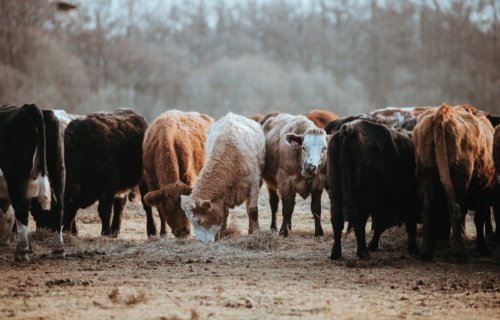CALI, Colombia — Citizens of the United States and many European countries are often encouraged to eat less meat, or all animal products for that matter, as a way to fight climate change. Unfortunately, a new study finds that approach won’t help in low or middle-income countries. In poorer regions, livestock is essential to both residents’ livelihoods and diets, researchers from the International Center for Tropical Agriculture (CIAT) conclude.
“Conclusions drawn in widely publicized reports argue that a main solution to the climate and human health crisis globally is to eat no or little meat but they are biased towards industrialized, Western systems,” says Birthe Paul, lead study author and environmental scientist at the Alliance of Bioversity International and CIAT, in a media release.
Animal studies rarely include Africa
Despite the continent of Africa being home to 20 percent of global cattle populations, 27 percent of sheep, and 32 percent of goats, only 13 percent of all scientific studies on livestock since 1945 have even bothered to include Africa. Moreover, the vast majority of institutions researching this topic are based in the U.S., United Kingdom, France, or the Netherlands.
In short, the research team says this narrow approach to understanding how livestock negatively impacts the environment fails to produce a full understanding of all the benefits livestock provides for the developing world. In these nations, livestock helps with ecosystem services, income, asset provision, and insurance. Even beyond all that, in places like Africa or South America, animals are cared for very differently than in the west.
“Mixed systems in low- and middle-income countries, where animal production is fully linked with crop production, can actually be more environmentally sustainable,” says researcher An Notenbaert. “In sub-Saharan Africa, manure is a nutrient resource which maintains soil health and crop productivity; while in Europe, huge amounts of manure made available through industrialized livestock production are overfertilizing agricultural land and causing environmental problems.”
‘Meat production itself is not the problem’
In the African savannah, herders pen their animals in at night. This improves local landscape nutrient diversity and biodiversity hotspots. Also, while western nations import feed for livestock, in poorer areas the food is locally grown. Consider the Brazilian rainforest for a moment. Soybean exports are a major cause of deforestation in the Amazon. Those soybeans are routinely shipped off to France for use as livestock feed.
“Meat production itself is not the problem. Like any food, when it is mass-produced, intensified and commercialized, the impact on our environment is multiplied,” notes Polly Ericksen, Program Leader of Sustainable Livestock Systems at the International Livestock Research Institute. “Eliminating meat from our diet is not going to solve that problem. While advocating a lower-meat diet makes sense in industrialized systems, the solution is not a blanket climate solution, and does not apply everywhere.”
Livestock is still a climate change issue
Still, there’s no denying that livestock systems indeed contribute to atmospheric greenhouse gases. When it comes to poorer countries however, researchers say more specialized national mitigation strategies must be developed. On a larger scale, new strategies and approaches need to be created that reduce all agricultural emissions.
Researchers suggest better food for livestock that leads to less methane emissions from the animals. Other ideas include taking better care of grazing areas and land, as well as placing livestock and crops in the same areas where manure is plowed back into soil.
“Better decisions about how to reduce global greenhouse gas emissions from livestock and agriculture in low- and middle-income countries can only be driven by better data,” says Klaus Butterbach-Bahl, from the Institute of Meteorology and Climate Research, Atmospheric Environmental Research (IMK-IFU) Karlsruhe Institute of Technology (KIT) and ILRI.
“For that, we need more – and not less – locally-adapted and multi-disciplinary research together with local people in low- and middle-income countries, on sustainable livestock development, with all the supporting financial incentives, policies and capacity in place to intensify livestock production in a more sustainable way, on a bigger scale,” he concludes.
The study is published in Environmental Research Letters.

Not eating meal worms, give me a tbone steak